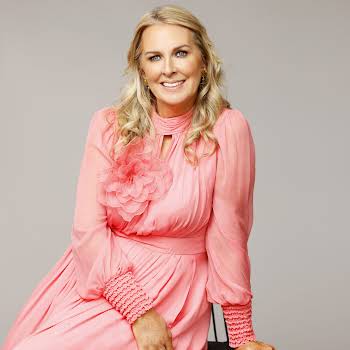
By Niamh Ennis
26th Nov 2021
26th Nov 2021
We're told to "be kind", but oftentimes that message starts at home, with showing a little more compassion and understanding to ourselves.
Self-compassion
You only have to pick up a magazine or jump on social media these days and you’ll hear someone utter the words “be kind”. We understand the importance of this message, but do we accept that being kind to ourselves is the best place to start when learning just how to be kind to others? We only really learn the art of compassion when we practice it on ourselves.
To start, I really wish there was another phrase that we could use instead of “self-care” as I feel it has been overused and much-maligned as a result.
Self-care and self-compassion are more or less the same in this context, but even I find myself getting a little frustrated with how self-care has, albeit inaccurately, become synonymous with self-indulgence and selfishness. We must remember though, that when we speak about self-compassion, the emphasis should be on looking after yourself in a much kinder and more loving way.
What is self-compassion?
Unlike self-criticism, which asks us if we are good enough, self-compassion asks us what’s good for us.
It is the ability to turn love, kindness, understanding, acceptance, and generosity inwards. If that sounds a little pretentious, then let me describe it like this; think of how you would treat a friend you love who is going through a difficult or challenging time. Think of all the emotions, feelings, and tools you engage when helping them, then imagine you doing that for yourself; that would be self-compassion in motion.
Compassion is the natural ability to show empathy and kindness to people who are in difficulty, and self-compassion is simply the ability to direct these same emotions inwards, and accept yourself, particularly during times of disappointment and difficulty. Many otherwise compassionate people can struggle showing compassion to themselves, sometimes out of a fear of engaging in self-indulgence or self-pity, but an inability to accept and acknowledge areas of weakness inside each of us, may in time prevent us from enjoying good emotional wellbeing.
How to recognise someone with high levels of self-comapssion
The first tell-tale sign is that they are sympathetic rather than judgemental about their own failures and mistakes. Secondly, they recognise that failures are a shared human experience and not exclusive just to them. Thirdly, they take a more balanced approach to their negative emotions when they mess up or disappoint; they give themselves permission to feel bad, but they don’t overthink or obsess, giving room for the negative emotions to take over.
3 steps to better self-compassion
1. Have kinder conversations
Observe the way you speak to yourself. What language are you using repeatedly? Do you often say “I wish I didn’t” or “I wish I wasn’t”? Are you guilty of overusing sarcasm or humour to distract from the reality of what’s happening around you?
The words we use can spark the thoughts we think and the feelings we feel so please pay close attention to the internal conversations you are having with yourself about yourself. the source of our lack of self-compassion lives here! To help with this, try thinking of that friend in need again. Think about how you would speak to them, consider the language you would use, and let that be your guide.
2. Practice forgiveness
Easier said than done, I know, but you have to stop punishing yourself for your past mistakes. No more letting the mistakes of your past determine how you are going to behave in the future. Work on accepting that you are not perfect and just be gentle with yourself when you are confronted with your own shortcomings and disappointments. You are loved and valued by those that matter because of who you are, not because you are perfect. Honestly, who do you know that is truly flawless? Those people just don’t exist, and yet we still expend so much energy trying to be that person.
The real difficulty here is that some of us were conditioned, as children, to believe that for us to be truly loveable, we must look, behave and speak a certain way. This is, of course, entirely untrue and often by the time we realise it, our habits are so deeply ingrained in us that we don’t know how to act otherwise.
When we understand that we don’t need to be a certain way to be worthy of love, we pave the way for greater self-compassion. Forgive yourself, look at what you’ve learned, release the disappointment, and move on.
3. Accentuate the positive
Feeling grateful is really very powerful and yet it is something we all struggle to do. I’ve never been one of those people who find it easy to do gratitude lists, but I can’t deny that when I’m journaling each morning, recording what I feel good about in my life in that moment really helps focus my head.
We can all too easily get distracted by what we don’t have in our lives, what isn’t perfect, or on what we wish for but don’t believe we deserve. It comes more naturally to us, simply because we do it a lot more often. But, by shifting our focus to thinking more about the good in our lives, we will soon start to create a new habit, a new way of thinking, in a much more compassionate way.
Self-compassion won’t come easily to you at the start, so please be patient with yourself. It’s only be breaking old habits, observing your behaviour and committing to changing your ways that you will see the difference it can make in how you view yourself.
When this happens, being compassionate to others will come much more easily to you too and you’ll be so much better placed to show people how you want to be treated.
Even Miss Taylor Swift has spoken out about the importance of self-compassion, previously telling Elle Magazine, “I’ve come to the realisation that I need to be able to forgive myself for making the wrong choice, trusting the wrong person, or figuratively falling on my face in front of everyone. Step into the daylight and let it go.”
Niamh Ennis is Ireland’s leading Change and Transformation coach and founder of The RESET for Change 3 Month 1:1 Private Coaching Programme. You can also join Niamh for her deeply nourishing online workshop ‘RELEASE & Receive on Tuesday, December 14 at 7pm. Secure your space now.























